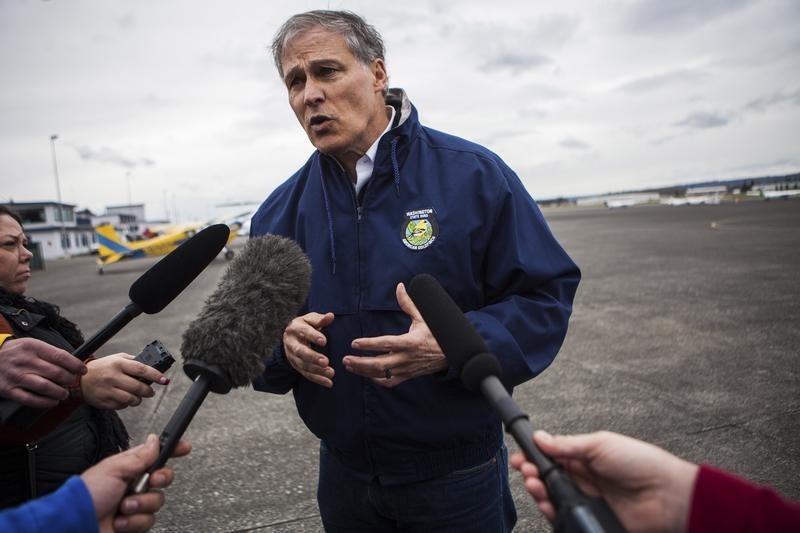By Robin Respaut
(Reuters) - Washington Governor Jay Inslee on Tuesday said he would work to counter a widening inequality gap and "the nation's most unfair tax system" by eliminating five tax loopholes and boosting funding for children's education.
In his State of the State address, Inslee proposed to fund a working families tax rebate to help residents in rural and economically disadvantaged areas, and spend $2.3 billion on children's initiatives, including funding for 6,000 low-income children to attend preschool.
In December, Inslee, a democrat, announced a plan for a new tax on capital gains that would help close a $2.5 billion state budget shortfall. By adding the new tax, the governor said on Tuesday that he would be asking "the wealthiest Washingtonians to do a little more."
Inslee's plan is likely to fuel disputes in the state legislature, where the Senate is controlled by Republicans and the Democrats have a majority in the House.
As part of the "largest-ever state investment in early learning," Inslee said he wanted to fully fund class-size reductions in early grade school, provide all-day kindergarten, and give teachers the first cost-of-living adjustment in seven years.
Some funding would come from a new carbon cap-and-trade program, announced last month, aimed at fighting global warming and raising money for schools and transportation initiatives.
The program would place a cap on the amount of carbon that large businesses and fuel distributors could emit. Companies would then have the option to either reduce their carbon output, buy carbon permits at state-run auctions, or purchase permits from other businesses on the open market.
"It is the growing threat of carbon pollution that can permanently change the nature of Washington as we know it," Inslee said on Tuesday. "Under my plan, it's the polluters who pay for the pollution."
The carbon pollution charge would benefit transportation projects through Washington, where the governor warned without action, there would be a 52 percent cut in the maintenance budget, and 71 bridges would become structurally deficient or obsolete.

The state had also found savings through efficiencies, such as $1.6 million annually on leasing costs and $3.5 million on Department of Social and Health Services energy costs in 2013, Inslee said.